Executive Courses
Upskilling Your Workforce through TDSI’s Executive Courses
TDSI’s Executive Courses under its Continuing Education arm look at domain-specific disciplines in systems thinking and systems engineering, as well as any in-trend/ emerging technologies, to upskill the Singapore defence workforce in line with the nation’s advocacy for lifelong learning. Embracing the digital transformation landscape today, participants will benefit from these courses, learning from subject matter experts from the defence technology community and/or academic institutions, on valuable topical knowledge and skillsets to manage real-world applications. This allows course participants to strengthen their capabilities and value-add to their employing organisations.
TDSI’s Executive Course “Military Navigation Systems Workshop” for Singapore’s Defence Technology Sector
Given the critical importance of navigation in modern military systems and operations that leverages on smart technologies, access to reliable navigation data is imperative while denying them to adversaries during military operations. The executive course on “Military Navigation Systems Workshop” aims to highlight the vulnerabilities in military navigation systems under different deployment scenarios, and share potential corresponding counter-measures. Participants from the defence technology community were appreciative of the knowledge gained from the workshop and acknowledged that the learning was highly relevant and impactful to their current field jobs/ projects. This workshop is well-recognised by the Professional Engineers Board and qualified for 6 Professional Development Units.
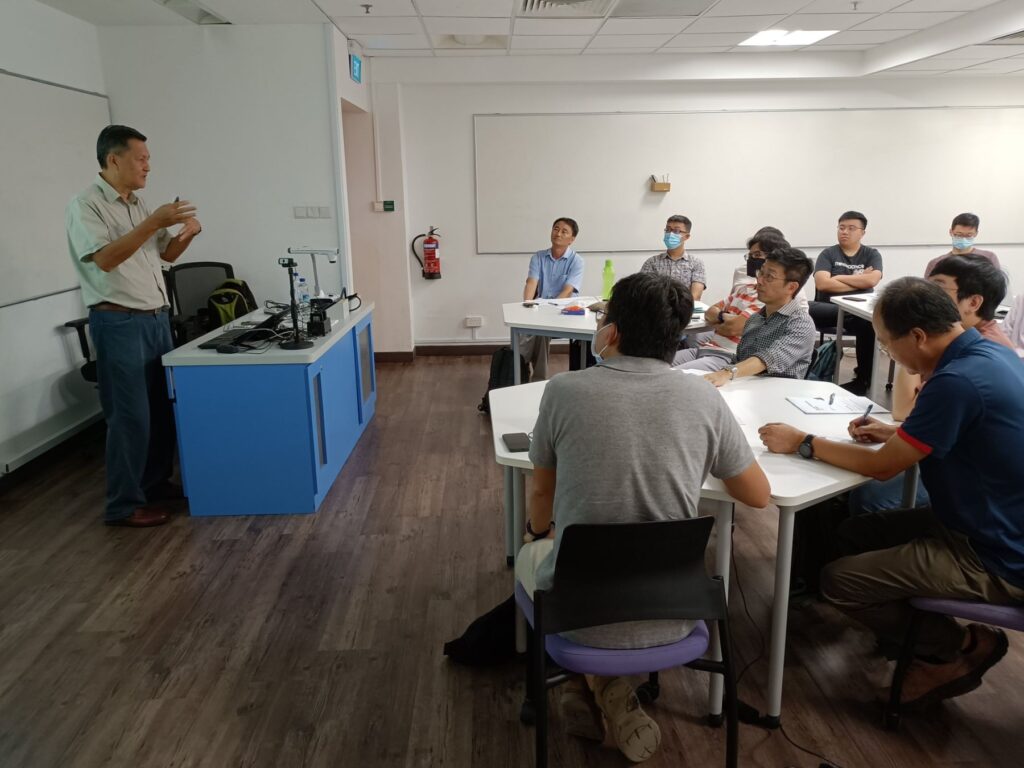
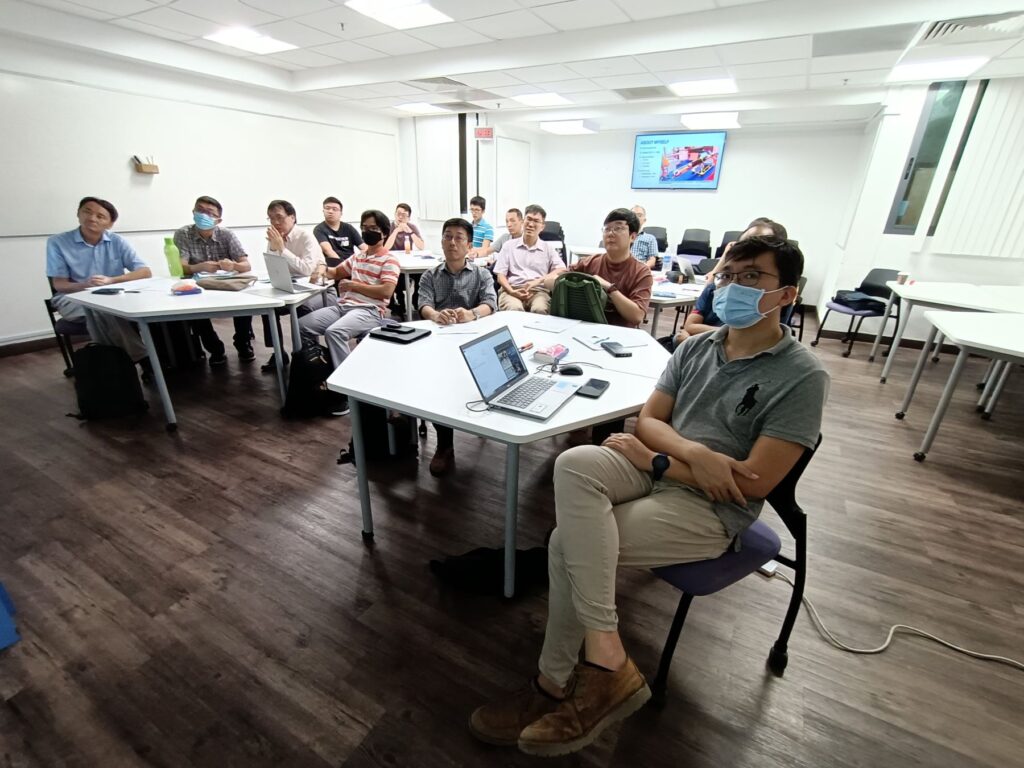
TDSI’s Executive Course “Systems Engineering and Analysis of Emerging Advanced Technologies for Defence Applications”
It is important for the Singapore defence forces to be at the frontier and be knowledgeable about emerging technologies for defence applications. The executive course on “Systems Engineering and Analysis of Emerging Advanced Technologies for Defence Applications” aims to present concepts and methods for engineering and analysing emerging advanced technologies, that include artificial intelligence and directed energy weapons, for defence applications. Course participants from the defence technology community have learnt and gained insights from the course that introduced concepts in complexity theory, strategic thinking, technology assessment, systems engineering and systems analysis. Course participants were appreciative that the learning gained have value-added to their current work with their primary affiliated organisations in the defence eco-system.
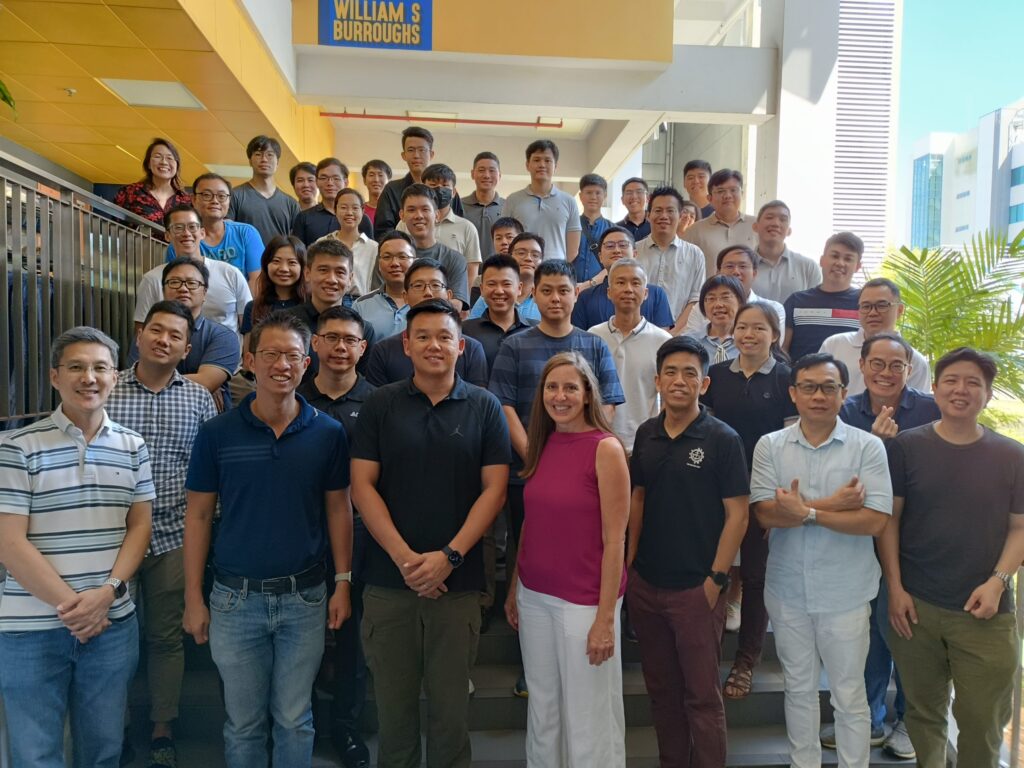
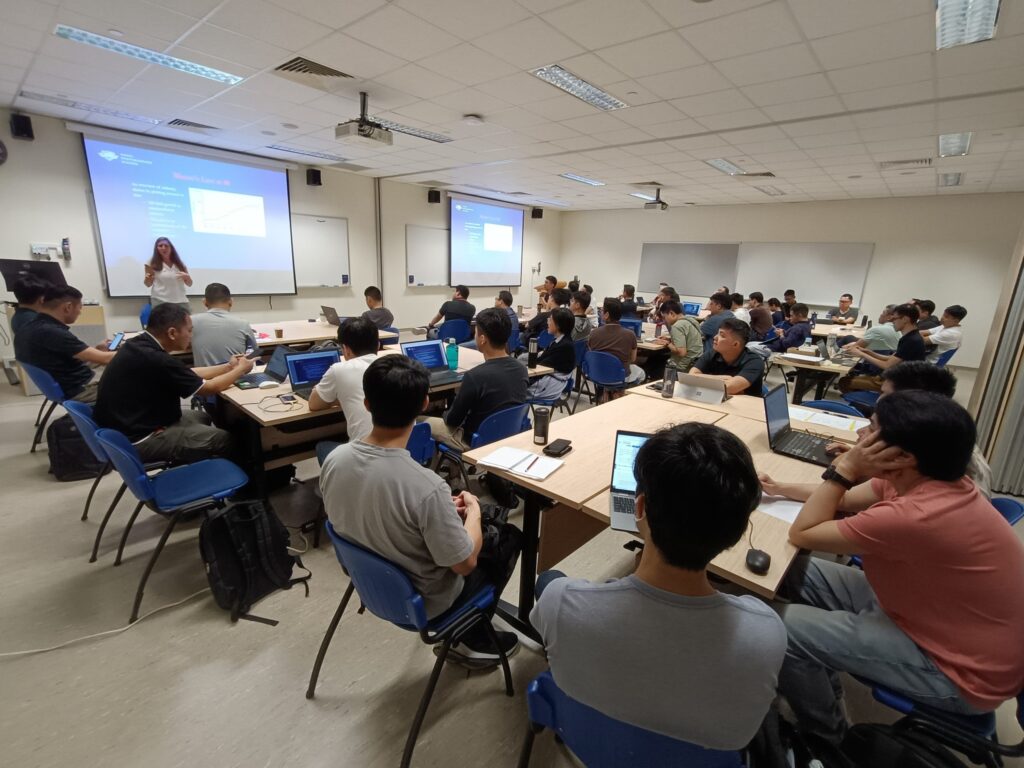
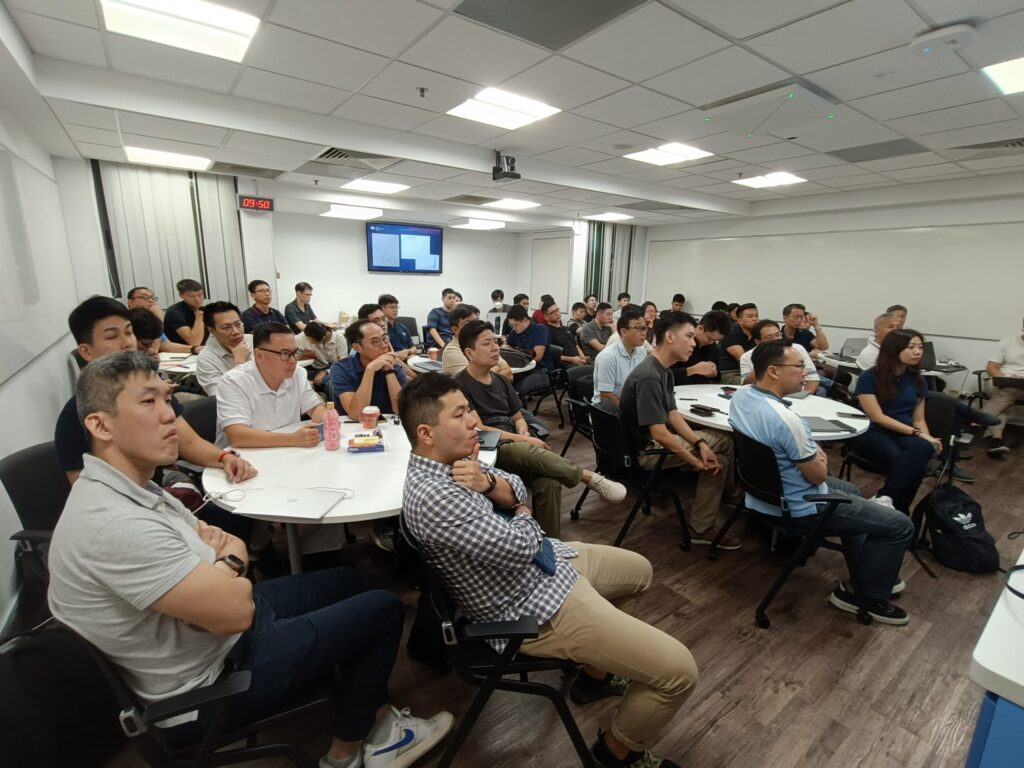
TDSI’s Executive Course “Generative Artificial Intelligence”
Artificial Intelligence (AI) technologies have been widely adopted in operations and work processes/ systems at the national level and in various industries. Generative AI is the latest cutting-edge technology that has been launched to extreme popularity, with progressive adoption by enterprises and industries because of its capabilities that can boost productivity and value-add decision-making, alongside many other deployment opportunities. Recognising the increasing importance of Generative AI for the defence sector, TDSI organised the executive course on this in-trend technology for the Singapore defence technology community to equip them with the fundamental knowledge of key concepts and applications of Generative AI, included algorithms such as generative adversarial networks (GANs) and variational autoencoders (VAEs). Course participants learnt how Generative AI could enhance military operations, from synthetic training data generation to scenario planning and decision support systems. This course is well-recognised by the Professional Engineers Board and qualified for 12 Professional Development Units.
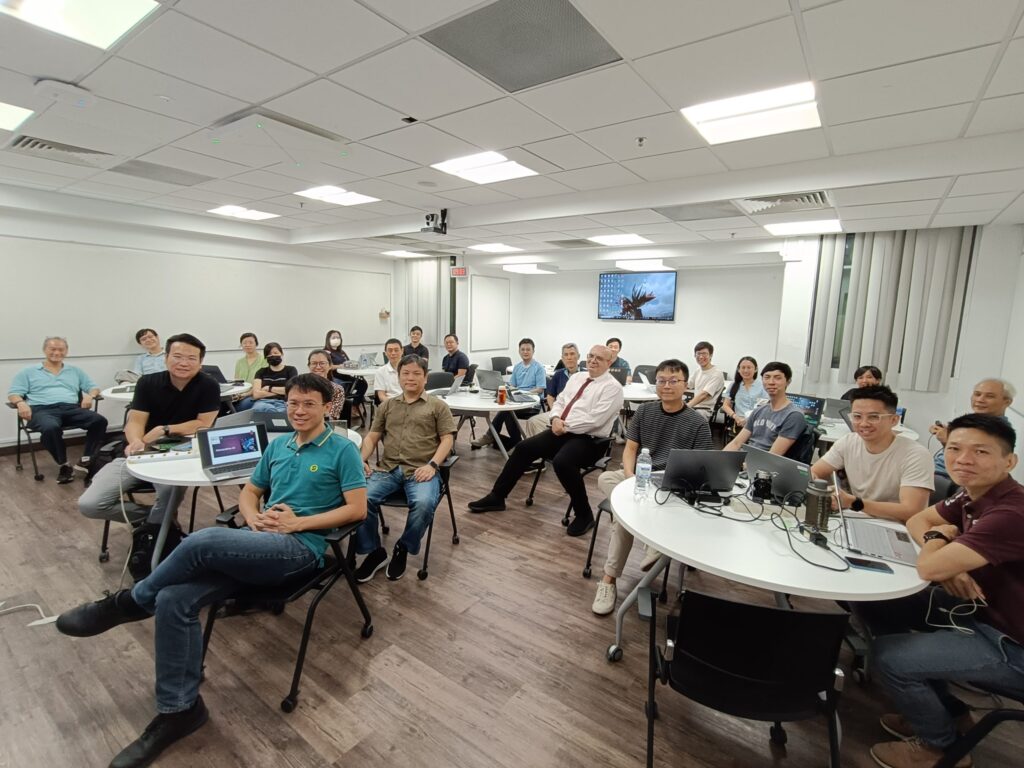
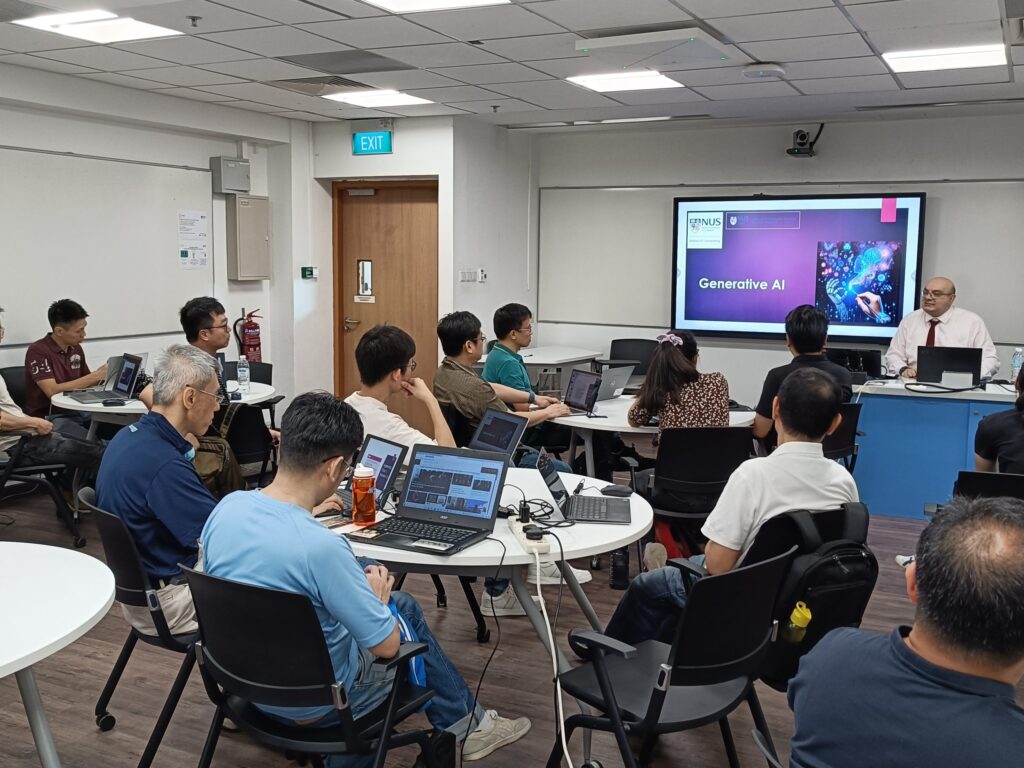
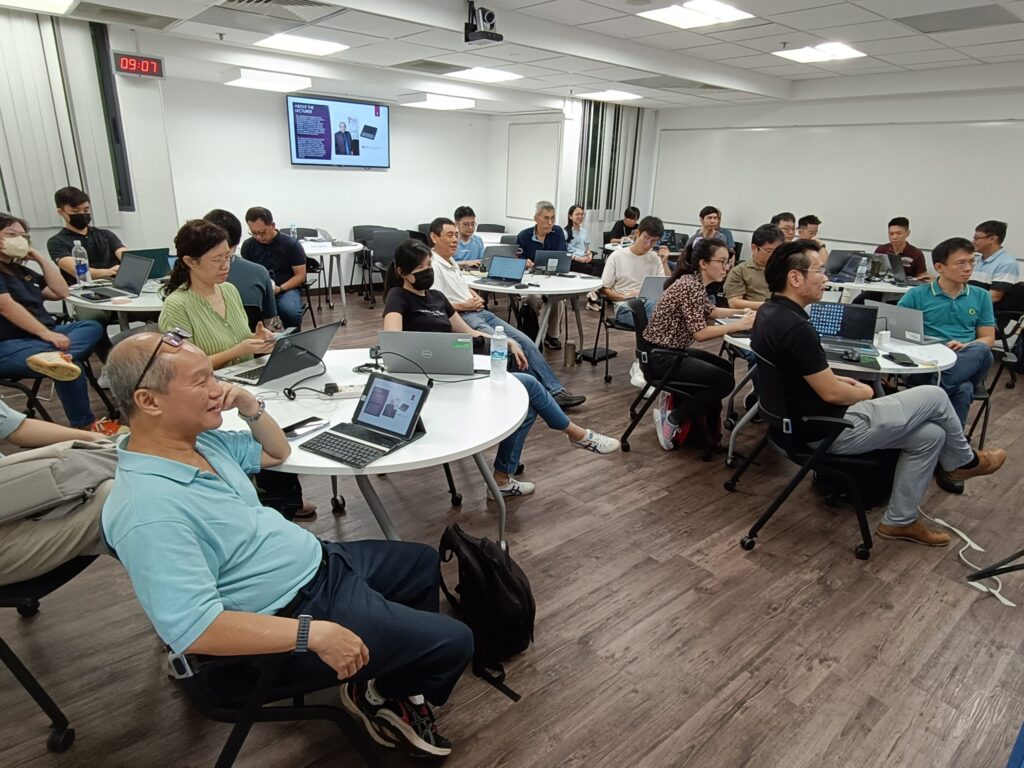
TDSI’s Executive Course “Swarm Intelligence and AI-Driven Unmanned Aerial Systems”
Swarm intelligence has become increasingly important for the defence community to learn as the technology is reshaping how autonomous systems operate in complex and contested environments. It is strategically important for the defence professionals to understand swarm intelligence technology to gain operational advantage, and with technology readiness, to ensure resilience and shape the future of warfare. Swarm intelligence is also a dual-use technology that could be applied from search-and-rescue and disaster response to maritime surveillance, making it essential for multi-domain operations. This 3-day intermediate-level course of TDSI focused on the fundamental and advanced concepts of multi-agent autonomous systems in the context of aerial swarms, specifically on the latest state-of-the art and practical applications. The course also provided a comprehensive overview of robotics and multi-agent systems, swarm formation, communications, task scheduling and allocations, swarm operations, as well as applications for heterogeneous systems and an introduction to game theory.
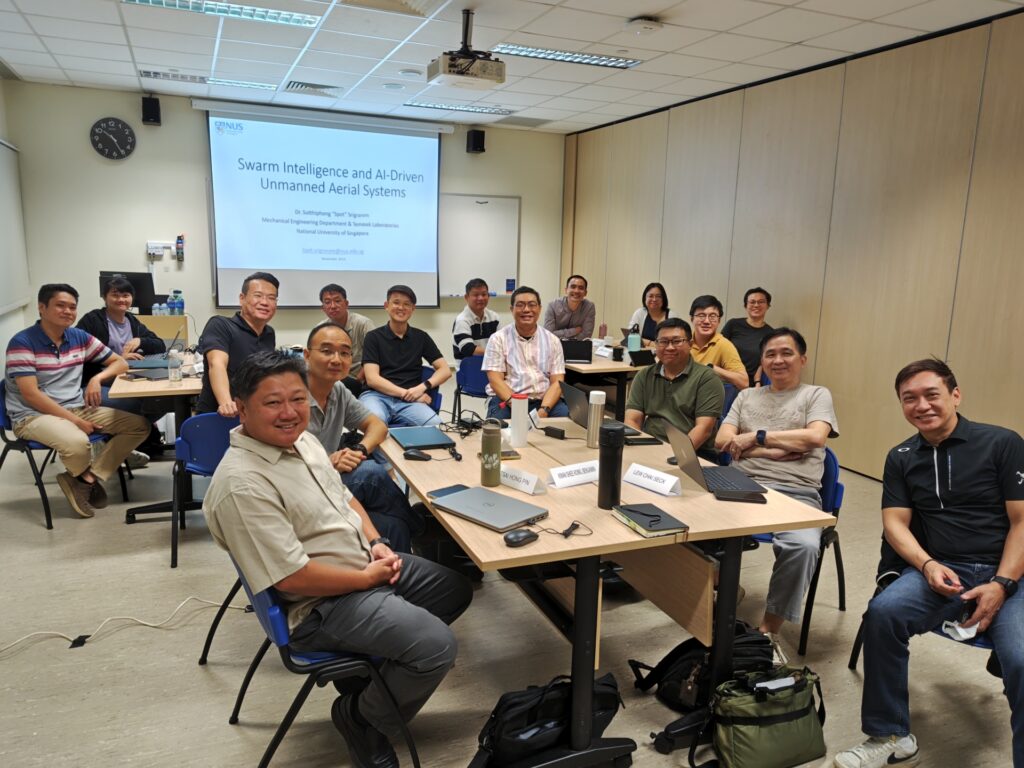
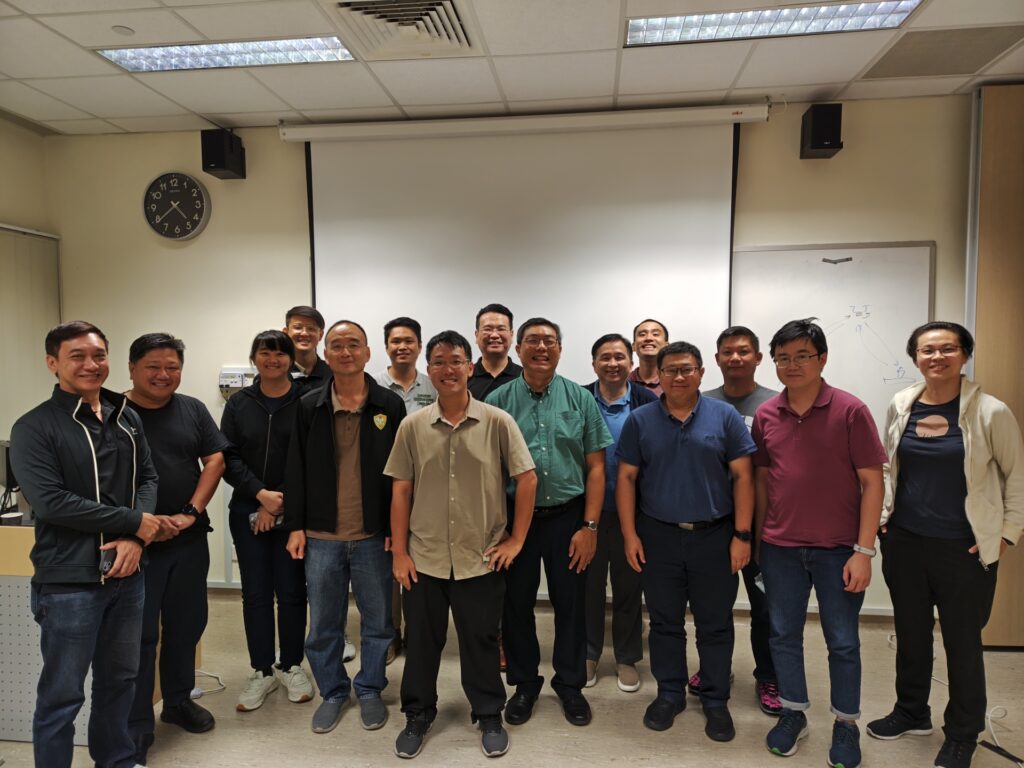

Optimizing Drone Interception with Deep Q Network-Graph Neural Network (DQN-GNN) Guided Task Allocation
Overview
Part 1: Evaluating Multi-Unmanned Aerial Vehicles Mission Efficiency through an Agent-Based Simulation
To evaluate how well future airborne systems with autonomous components perform their missions, we need to use performance models and metrics. This study demonstrates how to determine these metrics using a simulation that involves multiple Unmanned Aerial Vehicles (UAVs) as agents in a 2D environment. The simulation focuses on an air-to-ground operation with multiple UAVs assigned with different tasks. By using different types of UAV models with different characteristics in the simulation, we can compare their performances and determine which ones are more efficient and suitable for the mission.
Part 2: Interception of Multiple Drone Targets by Heterogeneous Interceptors using Heuristic Task Allocations with Graph-based Neural Network
- To optimise the effectiveness of air-to-air drone interception during counter-Unmanned Aerial Systems (UAS) operations, we employ a heuristic task allocation algorithm for a scenario where different types of interceptors (agents) are tasked with intercepting intruder drones (targets) at specific locations in the sky. This algorithm assigns each interceptor to track and search for a specific target, based on the concept of weapon target assignment.
- To guide the assigned interceptors in tracking the targets, we use a graph-based neural network approach. This approach provides rules for navigation and allows the interceptors to track the target in any environment, even when there are obstacles or other moving objects present. Preliminary studies have shown that the proposed heuristic task allocation and graph-based neural network significantly improve the efficiency of drone interception.
Learning Outcome
Course Outline
Who Should Attend
Lorem ipsum dolor sit amet, consectetur adipiscing elit. Ut elit tellus, luctus nec ullamcorper mattis, pulvinar dapibus leo.
Speakers
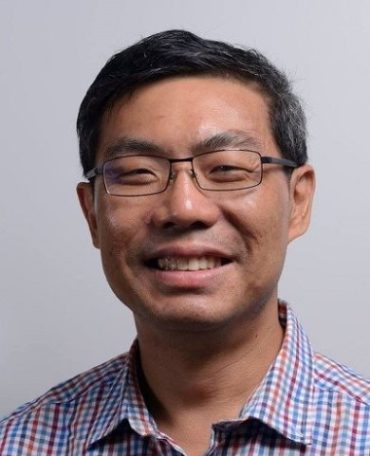
Dr. Sutthiphong Srigrarom
Senior Research Scientist, Temasek Laboratories
Teaching Fellow, National University of Singapore
Dr. Sutthiphong Srigrarom, also known as “Dr.Spot”, is a senior research scientist at Temasek Laboratories and a teaching fellow at Mechanical Engineering at the National University of Singapore. He received his PhD from University of Washington, USA in 2002.
Dr.Spot is also an adjunct associate professor at Institute of Flight System Dynamics, Technical University of Munich in Germany. Dr.Spot’s research work is mainly on small unmanned aircraft design, applied aerodynamics, aerial robotics, unmanned aerial systems and its applications, especially: vision-based navigation, perception and sensing for UAS, counter-UAS, multi-agent and swarm of UAV.
Details
- 13 Jun 2024, 2:00 pm - 4:00 pm
- 2 hours
- NUS Block EA, Engineering Auditorium
Status
This event is now closed.
